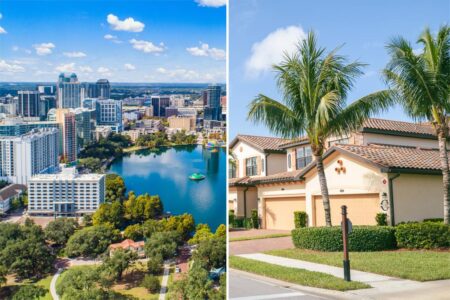As the global community confronts mounting pressures from climate change, rising energy demands, and widening economic disparities, the urgency for systemic solutions has never been greater. Despite unprecedented investment into renewables, the world still struggles with fragmented approaches: solar farms that lack storage, wind projects disconnected from local economies, and carbon policies that often prioritize short-term optics over long-term resilience.
What the world needs now are integrative models that connect innovation in energy, finance, and sustainability into one coherent ecosystem; a solution capable not only of delivering measurable environmental benefits but also of reshaping economies, restoring trust in markets, and empowering communities.
Luckily, the solution already exists. The Themis Ecosystem (TE) is a revolutionary concept that addresses multiple problems simultaneously. It monetizes society’s most significant issues and thereby transforms challenges into wins for all. As a business environment, it implies improved regulation, standards, and upgraded rules for key industries, such as waste management, IT and AI, healthcare, energy, transportation, medicine, housing, and food production.
Themis Ecosystem, a Silent Revolution
The heart of the TE consists of breakthrough technologies, called drivers. Each has already demonstrated its ability to solve urgent global problems while meeting strict conditions: being green, emission-free, carbon-negative, and offering a workable, relevant solution for decades to come.
Every technology must be globally scalable and fully digitized, which is achieved by converting its production into Industrial Raw Material Units (IRMUs)—digital certificates that represent both tangible goods and the verified CO₂ reductions created in the process. Backed by Ricardian generic contracts, IRMUs merge ownership of real products—such as green electricity, organic tar, biofertilizers, wood vinegar, etc.—into assets with measurable environmental impact.

The next part of TE is its own exchange and tools. Each driver issues its own IRMUs, which are traded through the OIX (Online Industrial Exchange). OIX is an open marketplace where participants of any size can buy and sell IRMUs. This democratizes access to sustainability while creating a new form of green investment. All IRMUs are safely stored in a secure location called the MonaLisa Vault.
By purchasing IRMUs, anyone can transparently reduce or even neutralize their carbon footprint, while also sharing in the economic benefits of clean production. Holding a required amount of IRMUs allows a person to balance their emissions. Larger purchases can offset the emissions of an entire household or business.
The third part of TE is the charity division, called We4Next Nation; the fourth is the worldwide community; and the fifth is the in-house media portal.
For these reasons, many experts consider the Themis Ecosystem the most advanced and comprehensive sustainability model ever created. It brings together the best practices of technology, finance, and ecology in a way that delivers real, lasting impact at both global and local levels.
Meet the Drivers
Three core technologies drive the Themis Ecosystem forward. The first is the Biomass Ultima (BU) plant, the world’s first industrial-scale biomass technology that converts wood waste into green electricity and four additional valuable by-products: organic carbon, organic tar, organic wood vinegar, and a wood-derived plant booster.

The BU plant operates with an energy efficiency of over 85% and is entirely CO₂-negative. Another feature that sets it apart is a unique real-time monitoring system, which ensures the operational safety, quality, purity, and precision of work.
The BU factory is preparing for a major launch, and the team is finalizing the details, including landscaping.
The second driver is a waste-to-energy plant, Project Phoenix8 (PP8), powered by Product Reincarnation Technology. It turns tires, scrap plastic, and other hydrocarbon waste into clean electricity and high-quality carbon black.
Confirmed by Bureau Veritas, it operates at a low temperature and without any emissions. With a 98% efficiency rate, it repurposes harmful waste, saving the environment while generating significant revenue in the process.
Currently, a specialized molecular degrader is being developed in sector A1/211. It was successfully launched three months ago and will increase the outcome by 3%.

The third driver is a revolutionary wastewater sludge purification technology called Project X900. The odorless and CO₂-negative process offers significant improvements in public sanitation and sustainable agriculture. Tested outside Europe, it has already proven its effectiveness. Now is the time to enter the European market.
These technologies form a circular economic system. Materials are reused instead of being discarded. Emissions aren’t just reduced but eliminated at the source.
Besides these, two other technologies are awaiting launch. The first is a special public anti-stress capsule called Asclepius8, offering natural therapies that combine inhalation of special plant essences while bathing in soothing sounds and colors.

The unit is en route to its final destination. After brief testing, it will be placed on a busy street in a metropolis, complementarily available to everyone.
The other technology is a Green Vertical Farming (GVF) unit that produces high-quality vegetables without the use of chemicals, under the brand John’s Organic Roots. Since the unit will get all the energy from the Biomass Ultima plant, it will be located near the BU factory. The GVF unit is also on its way to Slovenia, Europe, where all the technologies will be set and launched together.

Themis Ecosystem to Make the Biggest Impact on Our Future Lives
But the TE innovations don’t stop there. It also reaches the HR and employment sector. Factories and projects create new, modern, green jobs with high added value. All projects operating within TE will ensure excellent working conditions that exceed legal standards.
This includes not only high wages but also a healthy work environment, top-tier safety standards, modern equipment, and more. For example, all employees will be rewarded with IRMUs and receive bonuses in the form of free vegetables, produced by GVC units, as well as free electricity for their homes.
“We are preparing to present our ideas in Brussels as a proven solution for Europe. Our model shows that a fully sustainable system does not belong to the future—it already works. What is needed now is a fair, higher-level standardization and reform that benefits all stakeholders equally,” said Roberto Hroval, the founder of TE.
The Themis Ecosystem is designed to be the most optimized and sustainable model to date —a platform where environment, industry, and community converge to solve—and monetize—our greatest challenges. It aims to transform industrial sectors with innovations that directly shape the way we will live in the decades to come.











